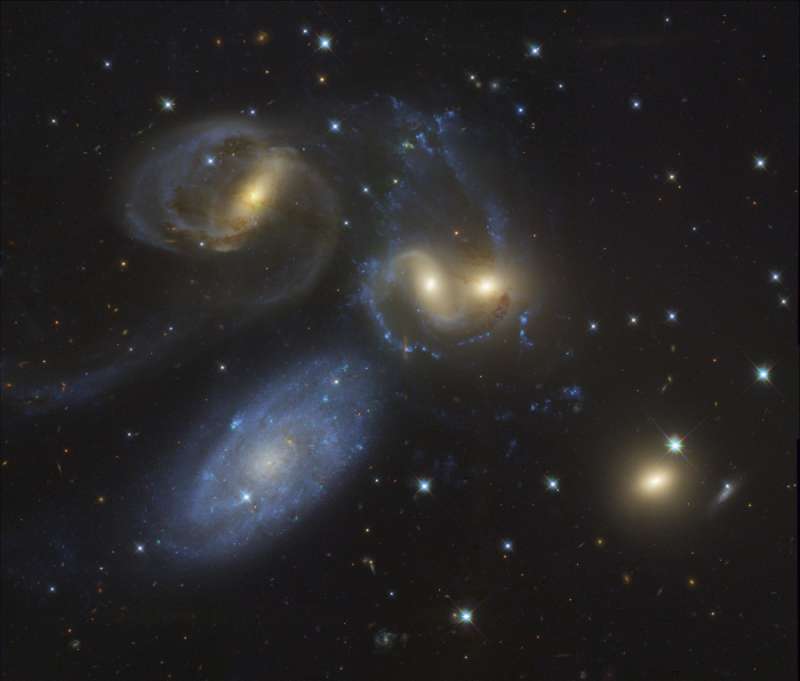Explanation: The first identified compact galaxy group, Stephan's Quintet is featured in this eye-catching image constructed with data drawn from the extensive Hubble Legacy Archive. About 300 million light-years away, only four of these five galaxies are actually locked in a cosmic dance of repeated close encounters. The odd man out is easy to spot, though. The interacting galaxies, NGC 7319, 7318A, 7318B, and 7317 have an overall yellowish cast. They also tend to have distorted loops and tails, grown under the influence of disruptive gravitational tides. But the predominantly bluish galaxy, NGC 7320, is closer, just 40 million light-years distant, and isn't part of the interacting group. Stephan's Quintet lies within the boundaries of the high flying constellation Pegasus. At the estimated distance of the quartet of interacting galaxies, this field of view spans about 500,000 light-years. However, moving just beyond this field, above and to the left, astronomers can identify another galaxy, NGC 7320C, that is also 300 million light-years distant. Of course, including it would bring the interacting quartet back up to quintet status.
1999 2000 2001 2002 2003 2004 2005 2006 2007 2008 2009 2010 2011 2012 2013 2014 2015 2016 2017 2018 2019 2020 2021 2022 2023 2024 2025 2026 |
Январь Февраль Март Апрель Май Июнь Июль Август Сентябрь Октябрь Ноябрь Декабрь |
NASA Web Site Statements, Warnings, and Disclaimers
NASA Official: Jay Norris. Specific rights apply.
A service of: LHEA at NASA / GSFC
& Michigan Tech. U.
|
Публикации с ключевыми словами:
Stephan's Quintet - interacting galaxies - HST - квинтет Стефана - космический телескоп им.Хаббла - взаимодействующие галактики
Публикации со словами: Stephan's Quintet - interacting galaxies - HST - квинтет Стефана - космический телескоп им.Хаббла - взаимодействующие галактики | |
См. также:
Все публикации на ту же тему >> | |
